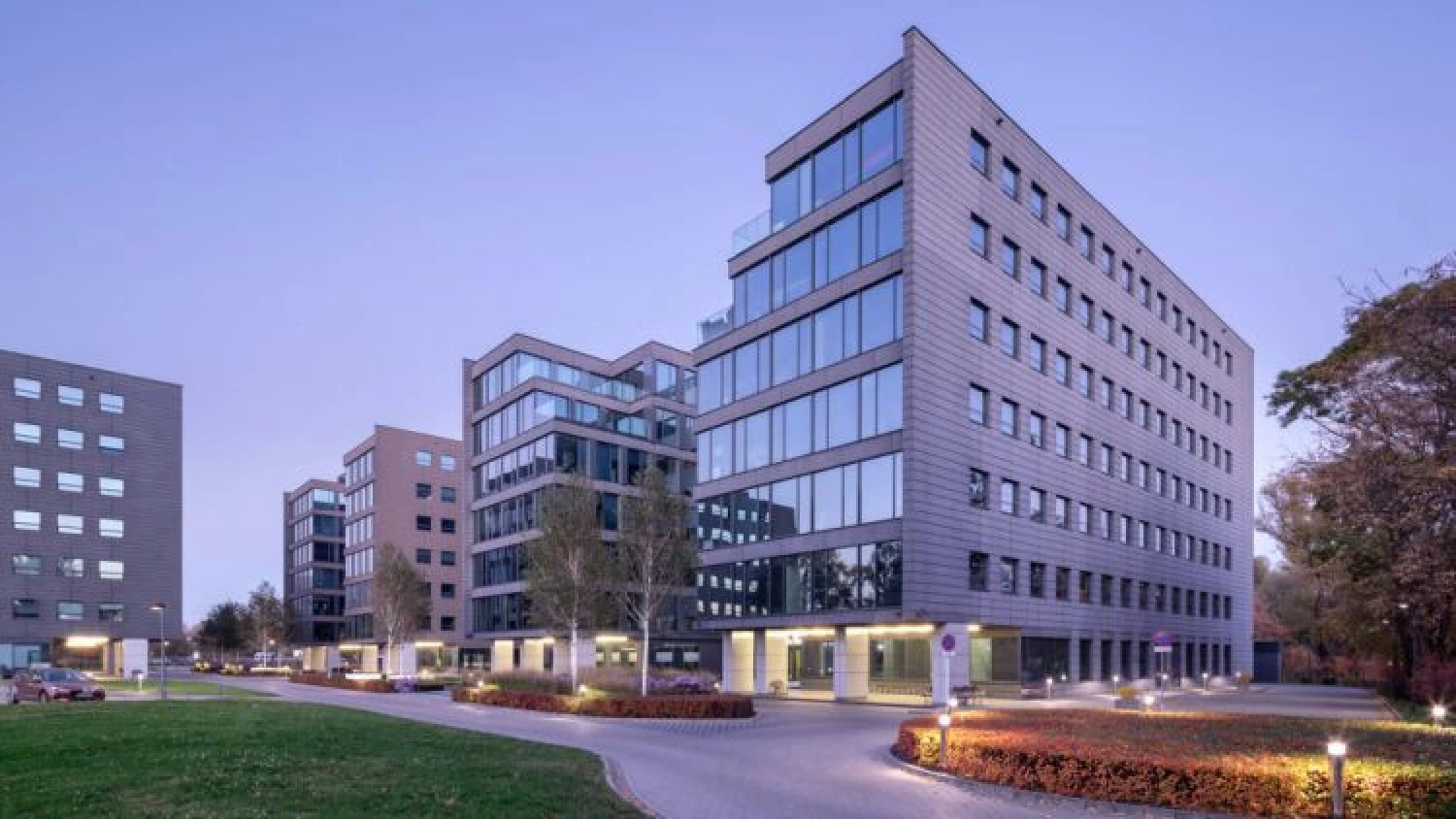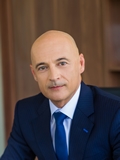
Zoltán Fekete and Ariel Ferstman, the CEO and CFO of Globe Trade Centre, have talked to Property Forum about GTC`s financial results in 2021, shaking off the last COVID-related restrictions and biggest challenges for the commercial property market in 2022.
Congratulations on the financial results for 2021. Looking only at numbers, one could say that pandemic turmoil is already behind you…
Zoltán Fekete: Yes, we are very pleased with these results. It was a very dynamic and successful year. We traded our assets, shifted the portfolio, we were developing new properties, but we also managed to increase our lease parameters. And finally, we had issued Eurobonds and increased capital - that move has significantly increased our equity. Please keep in mind that most of last year was still impacted by COVID. After the last 12 months, we are confident that we can also deal with any challenges coming in the nearest future.

Zoltán Fekete
Chief Executive Officer
GTC
How is your switch to unsecured finances progressing? How would you sum up the year 2021 in this matter?
Ariel Ferstman: Well, the numbers speak for themselves. We managed to successfully implement the transition from secured to predominantly unsecured financing. We have raised our unsecured debt to above 50% of the total debt. Moreover, we also managed to decrease our average funding costs to a record low of 2,16%. It is also very important to point out that 94% of our total debt is a hedge or fixed interest, so we are protected from the potential increases of interest rates in the upcoming months or years. In terms of how we are progressing with the transition itself, we are still committed to going fully unsecured, but not at any cost. We have tested markets, and we believe the conditions are not ready for us at this point in time to issue new bonds. I think we have a very healthy debt maturity profile for five years, and we are comfortable with the average funding costs. We don't want to sacrifice pricing for an additional increase in unsecured debt. We are carefully monitoring the markets and I believe that perhaps in the second part of the year, conditions will be better in order to consider the issuance of new Eurobonds. When the demand and pricing itself from our perspective will be adequate, we will consider it strongly and we are ready to do it. We would like to gain more flexibility on our debt side, but not at any costs. So we believe that perhaps in the first half of the year, there are too many volatilities on the market - COVID, the war in Ukraine.

Ariel Ferstman
Chief Financial Officer
GTC
Can the war in Ukraine hinder the interest of Western investors in the assets located in CEE countries? Poland and Hungary, your core markets are both the direct neighbours of Ukraine…
ZF: We don't see that happening yet. The investment market remains to be strong so there is interest in assets. There could be some delays for a few weeks. The situation is quite new to be able to draw any conclusions.
Is the war in Ukraine a threat to your development activities? In Poland, we are facing surging inflation and a rapid rise in the costs of construction materials on par with their shrinking availability…
ZF: In all the six countries we are active, we have a wide portfolio of potential developments. This gives us the opportunity to choose from these projects, which have good fundamentals so we can predict good profitability from them. So, for example, in Poland, we are not planning to launch new projects just now, but we are continuing our developments in other CEE countries. After selling our Serbian office portfolio, we launched GTC X in Belgrade, a new project of a 17,000 sqm office building. We already leased 51% of that project to a single tenant. The construction of the project is on time and on budget and it will be completed before the end of this year. One other example - in Bucharest we have redesigned initially the 100% office project into a mixed-use project, containing offices and resi4sale. It's called Spatio. We decided to launch that project because we observe there a strong demand on the residential side. We also have similar projects in Budapest. Just a few weeks ago we launched the development of Matrix C building in Zagreb – a natural move after the successful completion and lease out of the two first Matrix office buildings. Again, we have a range of countries and situations where we can always select what makes the most sense at the given moment. We constantly review business plans, and of course, adapt to increasing inflation expectations, changes in demand, construction costs etc.
You mentioned the rising demand for residential properties. Do you plan to return to invest in strictly residential projects or PRS development?
ZF: We have launched some projects, but not on a big scale. We intend to remain primarily in the office segment. But since that market is strong in most of our countries, we will do some projects in this segment on our existing landbank.
How are your retail properties performing, I`ve read in the report that footfall is still below pre-Covid 19 levels (74% in Q4 2021 v 2019), but turnovers are picking up quickly (95% in Q4 2021 v 2019)?
ZF: Yes, indeed. Occupancy is higher on the retail side compared to two years ago. Turnover figures are at a similar level as in 2020; in some shopping malls are even higher. Footfall is still a bit lagging behind, but I guess the situation is changing quite quickly because we are just getting rid of COVID restrictions. So, I'm quite positive that if the situation remains like this in terms of lifting COVID limitations, I think people will be getting back to normal life and the performance of those assets will be strong this year.
And how would you sum up 2022 in your office properties? Can you declare that the impact of the pandemic has been shaken off or there are still matters that need some improvement?
ZF: I think it's important to say that occupancy remains high, there have been no major changes in the office segment. Last year we managed to lease out 117,000 square meters in various markets, in Poland, Budapest, Bucharest - almost across the whole portfolio that we have. And we see tenants are moving back to the offices. In some places, they are almost completely back, in others they are still considering some more flexible way of working, but there is a need for office space for sure. So, I'm quite confident that the tenants will continue to use offices. By the way, ExxonMobil in just moved into its new office in Budapest’s Pillar building for a seven-year lease, it's a fantastic property. It's also important to mention that 88% of our office portfolio is green, certified at LEED Gold and Platinum or BREEAM Excellent levels, these are very high-quality assets, so the tenants are comfortable in those places.
You mentioned the sale of GTC`s Serbian portfolio in January. There are some rumours that you also plan to sell your assets located in Romania, could you confirm that?
ZF: We are not actively pursuing any disposals. And the way we consider such situations, is that first of all, we have to build good assets or own good assets, operate them well. If the investment market is strong, there will always be demand. That will give us the opportunity to sell above book value. That's the way I think about disposals in general. So certainly, I cannot confirm what you mentioned, but in general, we are selling a few assets every year and are open for opportunities, if there is demand at a good valuation. We can always build new projects and buy ones that will have a value-add component or present a great opportunity.
The final question - what will be the biggest challenges for GTC in the forthcoming 12 months?
ZF: I think the biggest challenge, of course on the office side, remains to be sure that the tenants are happy and prolong their leases. Gaining new tenants is another important issue - we still see that decision making is kind of slow. The Ukraine situation is not helping that - temporarily, I believe. So leasing is obviously the key. But we have reason to believe that we will succeed, just like we succeeded last year or anytime before. On the retail side - we are not looking to expand this part of the business. We are happy with the current mix and current performance. Obviously, there's a lot of work to be put into managing the retail assets. We managed to keep occupancy high and the good performance as well, but we have to continue that. On the development side, we will continue to look at opportunities selectively and on a conservative basis. So no speculative developments. But we have a track record that we can build on. Speaking of financial matters, we currently enjoy a historically low level of funding costs and as we mentioned before, 94% of our current debt is on fixed interest. That gives us a very strong position in terms of increased funding costs. In fact, it shouldn't really impact us. In terms of capital, we managed to close a capital increase last year, as we have raised €120 million. So again, I don't see that as a major challenge. Of course, regarding inflation, we have natural protection against it, because our leases are indexed. So that's the way I look at the current situation.



